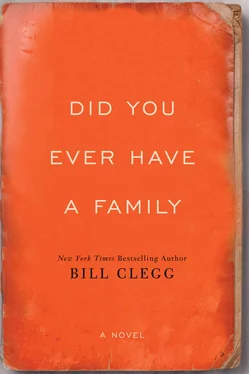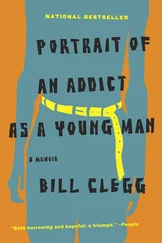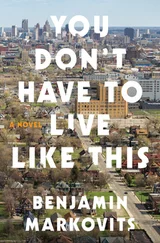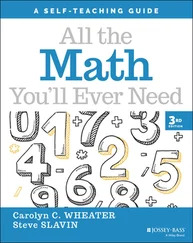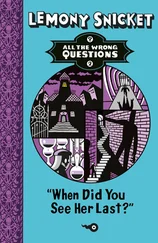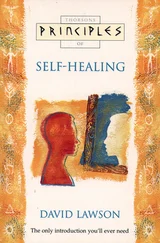A few weeks after Jane checked in, Rebecca and I noticed that Cissy was coming and going from Room 6 just a little bit more than was usual. We then began to see her carrying around a giant green thermos, the kind you see on camping trips with a big silver, screw-off top that doubles as a bowl or cup depending on what’s inside. We’d never seen her with it before, but not long after Jane checked in we saw that thermos in Cissy’s hands most days. Rebecca and I eventually pieced together that she was dropping it off at Room 6 in the morning when she started cleaning the rooms and picking it up at the end of the day. At first, Jane would leave it outside the door on the cement stoop, but after a while we noticed that Cissy would step inside to pick it up — usually for only a minute or two but occasionally for longer.
This business with the thermos has been going on for over seven months. What those two could possibly speak about or have in common I can’t imagine, and I’ll admit at first it irked me to be excluded from whatever bond they’d developed, but now when I see Cissy heading to Room 6 with that giant green thermos, I just think, Thank God that sad woman pulled up to our motel, and not some other godforsaken place. Thank God she has someone to look out for her. Thank God any of us do.
He’s explained it all before and it still makes no sense. In that voice of his that rises and falls and swoops like a song. You are a lucky lady, Lydia Morey. Lucky, indeed. This lottery you have won is over three million dollars and is only awarded once every two years. At times she does not hear a word he is saying, just his voice. She has fallen asleep with the phone cradled between her ear and shoulder, his voice a lullaby, spinning tales of millions. The prize, he says, has never before been given to an American, and technically it cannot be, but Winton is offering to help her, putting himself on the line to steer her through the red tape so she can receive her money. This, he says with an ocean of warmth in his voice, is what I will do for you.
Sometimes she hangs up on him, leaves the receiver off the hook and turns out the light. But he always calls the next day. Usually between nine and ten in the morning and then again after six o’clock, after she’s mailed her bills, shopped for her few groceries — toilet paper, cans of Progresso soup, English muffins — and had her coffee at the coffee shop. Often, when she is unlocking the door to the apartment, she hears the phone ringing. The few times it hasn’t, she’s been disappointed. It’s a scam and she knows it. He is flirtatious and personal, warm and bullying, and she understands that she is being drawn in, manipulated, made dependent. She knows all this but still she picks up the phone. Occasionally, like a teenager who tells her mother to tell the boy she has a crush on that she’s not home when he calls, she will let it ring. But she will pick up the next day and she knows it. Winton knows it, too, because he always calls again. Lydia Morey, I missed you yesterday. You must have been out cutting a rug or breaking some poor boy’s heart. After a month of the calls and the talk of prize money and red tape and risk, Winton begins to apply a little pressure, set a clock to the proceedings. The three million dollars will go to someone else if she does not pay the international prize taxes. The first tax is $750, pennies compared to what she will have, and it is a sum the prize committee reimburses. They would pay it directly for her but it is not allowed. She must pay first and then the committee will send her that amount right away. Paying this tax, Winton says without music, is necessary to continue.
She pays. She drives to Walmart in Torrington, puts $750 on a money card as Winton suggested, and mails it to an apartment in Astoria, Queens, where a designated representative from the lottery lives. Walmart, Queens, money cards, reimbursements — she is amazed he thinks she will believe any of it. And still she’s not ready to step away. Not prepared just yet to come home in the evening each night knowing there will be no phone call. As well, there is also a thin, far-off hope that somehow the ludicrous scenario Winton has described is true. She has even allowed herself the fantasy of sending him money after she wins to pay for his schooling, to help him support his family. But it’s all a farce and she knows it will expire or she will end it soon, but not just yet. So she allows herself to think of the $750 as a test. A test she knows he will fail, and because he will, the farce will end and all will return to being as it was. She deliberately does not think this through, actively protects herself from recognizing how wasteful this is. She will see this to its end and she does not ask herself why.
And so she puts the money card in an envelope addressed to Theodore Bennett in Astoria, Queens, the prize official Winton mentioned. Winton also told her there should be no note inside and no return address on the envelope. And though the idea of $750 floating out there without a return address is intolerable, she still complies and drops the untraceable envelope in the mailbox in front of the Town Hall.
In the days that follow, the calls from Winton continue and she settles back into their established routine. A morning call she mostly avoids, an evening call she takes. She listens to him talk about his last girlfriend, who cheated on him and left him crushed, the son she never lets him see, his sick mother, his sister in jail. His world blinks to life over these calls. He is a jilted boyfriend, a dutiful and worrying son. He is twenty-eight, he says. He is taking classes at night to get a degree in accounting so he can quit his job with the lottery, which pays poorly and is only part-time. He would have quit months ago but he’d like to steer this year’s prize to Lydia before he goes. Just do this one last thing because he’d like to see a good woman like Lydia get the money. Not some European asshole, the type who usually takes the prize.
Over time his sister in jail becomes his cousin, his aunt, his niece. The class at night is for engineering, for hotel management, for graphic design. The girlfriend’s name is Carla, Nancy, Tess, Gloria. He is twenty-eight, twenty-four, thirty. The inconsistencies alarm Lydia at first and then amuse. Further proof that she’s right, that the whole thing is a hoax. But then Winton begins to ask again about her life. Questions he asked in the beginning but she deflected. Is she married, what does she do for work, does she have children? And now, because something else must begin on these phone calls for them to continue, she tells him about Earl Morey, her ex-husband. The redheaded boy who was a lot of fun and then none at all. Who called her Snacks and pinched her leg and butt and left small purple-and-yellow bruises. Who knocked her in the head with a phone book one night so hard it made her lose her balance the whole next day. Who stayed at the Tap with his brothers and cousins and uncles most nights and would come home drunk and, if she was lucky, sleep on the couch of their small apartment. She was nineteen and married, and within the year she hated him and his whole family and she could do nothing. When she finally confessed what was going on to her mother, she told her daughter to zip it and be grateful she’d found a man from a good family. She tells all this to Winton, and as she talks about this time, it’s as if she’s reading a bedtime story to her son when he was a boy, about a girl who made the wrong turn in the forest and had no way out. She talks and talks, just as Winton had in the beginning, and she hears him breathing on the other end of the phone. Only rarely does he ask a question or comment on anything she’s said, and if he does, it is punctuation and no more. What a fool, that stupid man, he has said. A drunken fool . She does not mention other men, the ones who pursued her until they slept with her and then stopped calling. Nor does she mention Rex. And Luke, she says nothing about him.
Читать дальше
